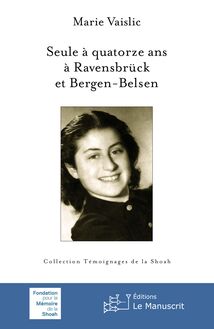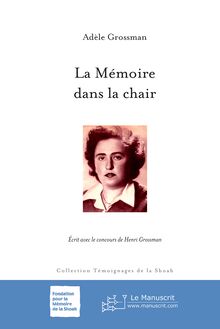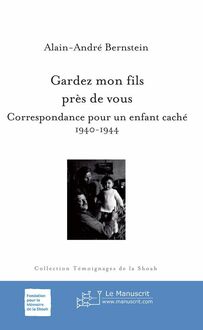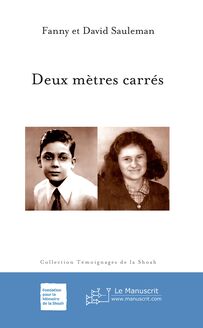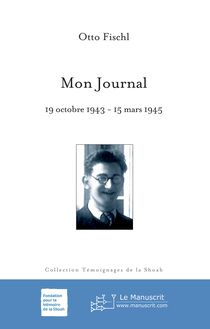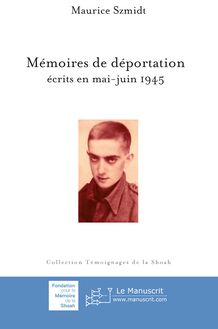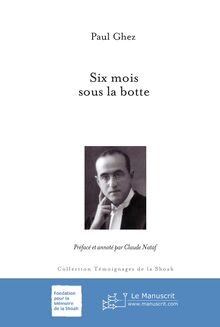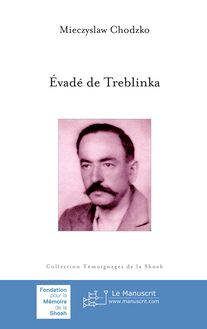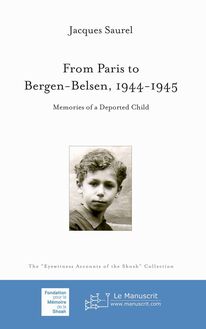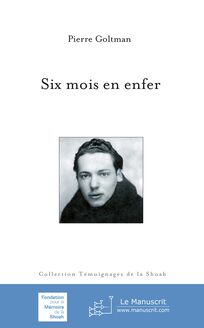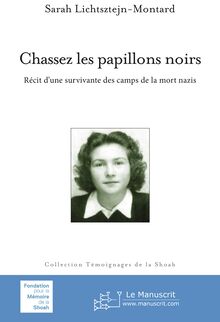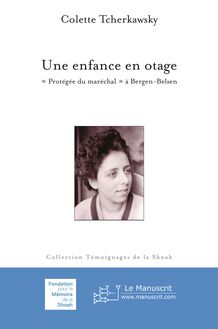-
 Univers
Univers
-
 Ebooks
Ebooks
-
 Livres audio
Livres audio
-
 Presse
Presse
-
 Podcasts
Podcasts
-
 BD
BD
-
 Documents
Documents
-
- Cours
- Révisions
- Ressources pédagogiques
- Sciences de l’éducation
- Manuels scolaires
- Langues
- Travaux de classe
- Annales de BEP
- Etudes supérieures
- Maternelle et primaire
- Fiches de lecture
- Orientation scolaire
- Méthodologie
- Corrigés de devoir
- Annales d’examens et concours
- Annales du bac
- Annales du brevet
- Rapports de stage
La lecture à portée de main
Vous pourrez modifier la taille du texte de cet ouvrage
Découvre YouScribe en t'inscrivant gratuitement
Je m'inscrisDécouvre YouScribe en t'inscrivant gratuitement
Je m'inscrisEn savoir plus
Vous pourrez modifier la taille du texte de cet ouvrage
En savoir plus

Description
Sujets
Informations
| Publié par | Éditions Le Manuscrit |
| Date de parution | 01 janvier 2020 |
| Nombre de lectures | 0 |
| EAN13 | 9782304043334 |
| Langue | English |
| Poids de l'ouvrage | 1 Mo |
Informations légales : prix de location à la page 0,0250€. Cette information est donnée uniquement à titre indicatif conformément à la législation en vigueur.
Extrait
Elisabeth Kasza
The Nomad
Foreword by Prof. Pierre Rondot Translated from the French by Barbara Smith and Glenn Naumovitz
the “eyewitness accounts of the shoah” collection
Le Manuscrit
ISBN: 9782304043334
© 2019 Le Manuscrit
Elisabeth Kasza
“Eyewitness Accounts of the Shoah” a series published for the Fondation pour la Mémoire de la Shoah, Paris (Foundation for the Memory of the Shoah)
With its “Eyewitness Accounts of the Shoah” published in association with Editions Le Manuscrit using the latest communication technology, the Foundation seeks to preserve for a wide readership the memory of victims and witnesses of the dark years of anti-Semitic persecution from 1933 to 1945.
In addition to the many works already published else-where, the Foundation hopes in this way to present the stories of those men and women whose voices have remained unheard until now: reminiscences often buried deep inside individual or family memories, stories sometimes written down but never published, accounts that were published at the time of leaving the hell of the camps, only to remain for too long hidden away on library shelves.
If one person alone cannot describe the unspeakable, this multiplicity of accounts may at least get close.
At any rate, that is the aim this collection has set itself with the moral and historical support of the Foundation, thanks to its editorial board of scholars and eyewitnesses.
Confronted with the manner in which present-day conflicts may be exploited to obscure, distort and trivialize the reality of the Shoah, this collection will enable readers, re-searchers and students to gauge the specific nature of persecution in its most extreme form - a persecution in which some were actors, others accomplices, and to which some people remained indifferent while others were truly heroic.
It is our wish that these works may encourage a spirit of fraternity in moving readers to counter anti-Semitism and all other forms of exclusion.
Editorial Board for the collection (2014)
Serge Klarsfeld, president
Henri Borlant, deportation survivor
Isabelle Choko, deportation survivor
Olivier Coquard, historian
Katy Hazan (OSE), historian
Dominique Missika, historian
Denis Peschanski, historian
Paul Schaffer, deportation survivor
Annette Zaidman, hidden child
Philippe Weyl, head of the collection
For other titles in the collection.
Biography of Elisabeth Kasza
1924 9 May: Julianna Erzébet Kasza is born in Kaposvár (today the capital of Somogy County, southwest Hungary) to a Lutheran family of Jewish origin. Her father, Dezsö, was born in Fugyivàsàrhely on 14 March 1882. He owned a brewery with his brother before opening a travel agency. Her mother, Dezsöné, a concert pianist and a piano teacher, was born Elisabeth Strehm in Somogybükkösd on 20 August 1895.
Elisabeth had one brother, Denis, two years her senior.
Their maternal grandfather, a widower, owned a several-hundred-hectare estate of farm and grazing land, which he ran himself, not far from where they lived. They spend their holidays there. Their mother’s younger sister lives with her husband and their daughter in Budapest.
After the Austro-Hungarian Empire is defeated in the First World War and dissolved, Hungary loses two-thirds of its land and half of its population (the Trianon Treaty). On 1 March 1920, Miklós Horthy, an admiral and hero of the Great War, takes control of the government in the kingdom of Hungary. He is declared Regent and establishes a nationalist, ultraconservative dictatorship.
1937 23 October: the Fascist and nationalist party takes the name “Arrow Cross Party”.
1938 15 March: Hitler proclaims Nazi Germany’s annexation of Austria ( Anschluss ), now bordering Hungary, which passes a series of anti-Jewish laws.
Elisabeth’s grandfather dies.
2 November: the First Vienna Arbitration (or diktat): Hungary recovers Upper Hungary and part of Subcarpathian Ruthenia.
1939 March: Czechoslovakia is dissolved. Hungary occupies the rest of Subcarpathian Ruthenia, sparking an armed conflict with Slovakia, newly created by Germany. Hungary must settle for the eastern fringe of its adversary’s territory .
1 September: Germany invad es Poland. The Second World War begins in Europe.
Elisabeth graduates from high school, joins her brother in Budapest and enrolls in the Academy of Agriculture to study horticulture.
1940 30 August: the Second Vienna Arbitration. Hungary takes northern Transylvania from Romania. To Hungarians, the two Vienna Arbitrations are rightful reparations of the scandalous Trianon Treaty (1920).
20 November: Hungary joins the Axis Powers (Germany, Italy and Japan).
1941 26 June: Hungary breaks off diplomatic relations with the USSR and attacks it four days after its surprise invasion by the Third Reich’s armies.
1943 12 January: the Voronej catastrophe. The Red Army routs the Hungarians on the Russian front.
2 February: the Germans surrender at Stalingrad in the Nazis’ first crushing defeat since the war started.
Sensing that Hitler will lose the war, the Hungarian government holds secret talks with the British and Americans.
1944 19 March: German troops invade Hungary. Regent Horthy keeps his position but the Germans put a pro-Nazi general in power as prime minister. In collaboration with the country’s authorities, SS Colonel Adolf Eichmann organizes the deportation of Hungarian Jews (approximately 825,000 people, including 100,000 who had converted to Christianity).
April: The Hungarian authorities order Jews to assemble in certain Hungarian towns, where they create ghettos.
A section of Kaposvár is emptied of its occupants and turned into a ghetto where Jewish families from the city and its outskirts are concentrated. Elisabeth, at first stunned to learn that she has Jewish roots, returns from Budapest and joins her family in the Kaposvár Ghetto, where living conditions are horrendous.
At the Gestapo’s request, the ghetto’s Jewish Council appoints Elisabeth, because of her studies, to tend the garden of houses requisitioned for the SS. The commanding officer agrees to let Elisabeth’s mother join her.
Mid-May: the mass deportation of Hungary’s Jews begins.
The SS chief offers Elisabeth the chance to escape deportation but she refuses to leave her parents.
After four days and nights, their convoy of cattle cars reaches Auschwitz II-Birkenau: the men and women are separated from each other.
Selected for forced labor, Elizabeth and her mother enter camp B III of Birkenau (“Mexico”) for quarantine.
Early June: Elisabeth learns of her father’s death.
7 July: threatened with accusations of war crimes by the Allies, Horthy orders an end to the deportations, thereby protecting the Jews of Budapest.
August: detainees are selected for a “transport” (transfer). Elisabeth is cruelly separated from her mother, who is gassed in Birkenau in early October.
Horthy dismisses the prime minister and replaces him with an anti-Fascist general.
September: Elisabeth arrives in Bergen-Belsen (north of Hanover) in a cattle car “transport”.
The Soviet army enters Hungary.
Autumn: in the same conditions, Elisabeth is taken to Duderstadt Camp, a satellite of Buchenwald (around 10 kilometers from Weimar). After several days in the kitchen, she starts working in a weapons factory.
Horthy announces an armistice after secret talks with the Soviets.
16 October: in reaction, the Germans oust Horthy and impose the head of the pro-Nazi Arrow Cross Party as prime minister . Persecution, massacres and deportations of Jews follow.
22 December: election of a provisional National Assembly, which meets in Debrecen, and naming of a provisional government, which declares war on Germany six days later.
1945 20 January: signature in Moscow of an armistice agreement with the Allies.
15 March: passage of a law on land reform.
April: as the Red Amy completes its occupation of Hungary, Elisabeth is transferred to the ghetto camp of Theresienstadt (Terezin in Czech), today in the Czech Republic.
8 May: the Soviets liberate Theresienstadt. Nazi Germany surrenders. The Second World War ends in Europe.
After traveling several days Elisabeth reaches Budapest, where she spends six weeks in a hospital being treated for myocarditis caused by nutritional deficiencies.
She visits Austria with Kea, her old governess, before enrolling at the Academy of Sciences to major in biochemistry. Her brother Denis joins her.
6 December: nationalization of factories.
1946 1 February: abolition of the monarchy and proclamation of the Republic. The Communists gradually take power in a climate of terror until the proclamation of the People’s Republic of Hungary (20 August 1949), which pledges loyalty to the USSR.
May: Elisabeth learns of her mother’s death from a former fellow inmate.
1947 10 February: signing of the Treaty of Paris. Hungary returns to its pre-1938 borders, in other words those established by the Trianon Treaty.
1948 Elisabeth’s brother receives a scholarship to continue his oenology studies in Montpelier, France. She receives a scholarship to MIT in Cambridge, Massachusetts.
After intercepting a letter from Denis in which he says he does not wish to return to Hungary, the police confi
-
 Univers
Univers
-
 Ebooks
Ebooks
-
 Livres audio
Livres audio
-
 Presse
Presse
-
 Podcasts
Podcasts
-
 BD
BD
-
 Documents
Documents
-
Jeunesse
-
Littérature
-
Ressources professionnelles
-
Santé et bien-être
-
Savoirs
-
Education
-
Loisirs et hobbies
-
Art, musique et cinéma
-
Actualité et débat de société
-
Jeunesse
-
Littérature
-
Ressources professionnelles
-
Santé et bien-être
-
Savoirs
-
Education
-
Loisirs et hobbies
-
Art, musique et cinéma
-
Actualité et débat de société
-
Actualités
-
Lifestyle
-
Presse jeunesse
-
Presse professionnelle
-
Pratique
-
Presse sportive
-
Presse internationale
-
Culture & Médias
-
Action et Aventures
-
Science-fiction et Fantasy
-
Société
-
Jeunesse
-
Littérature
-
Ressources professionnelles
-
Santé et bien-être
-
Savoirs
-
Education
-
Loisirs et hobbies
-
Art, musique et cinéma
-
Actualité et débat de société
- Cours
- Révisions
- Ressources pédagogiques
- Sciences de l’éducation
- Manuels scolaires
- Langues
- Travaux de classe
- Annales de BEP
- Etudes supérieures
- Maternelle et primaire
- Fiches de lecture
- Orientation scolaire
- Méthodologie
- Corrigés de devoir
- Annales d’examens et concours
- Annales du bac
- Annales du brevet
- Rapports de stage
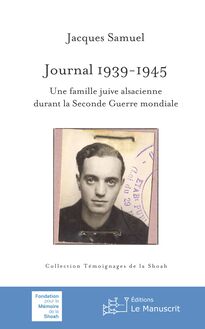
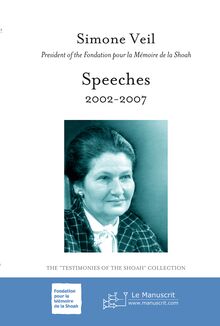
![[En]quête de famille](https://img.uscri.be/pth/2d18ccf0814431f0b2cebbf9d26faf0e9ab5ea36)
